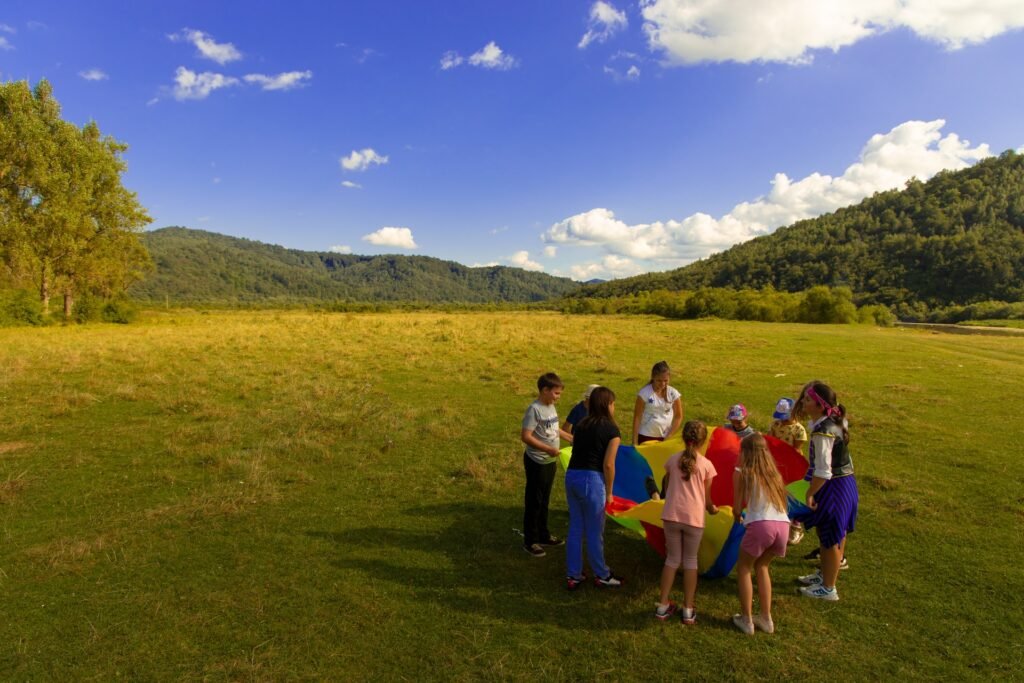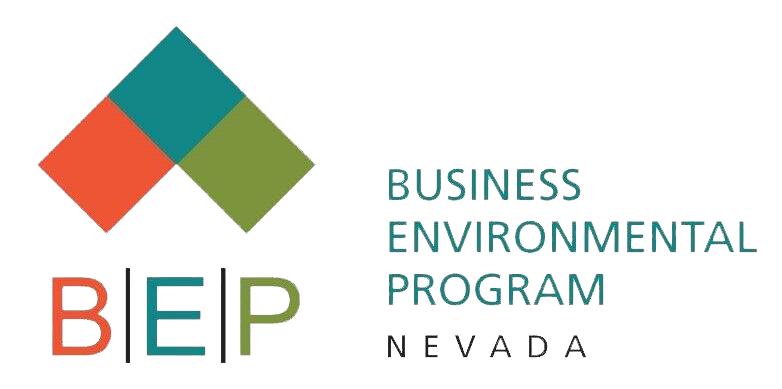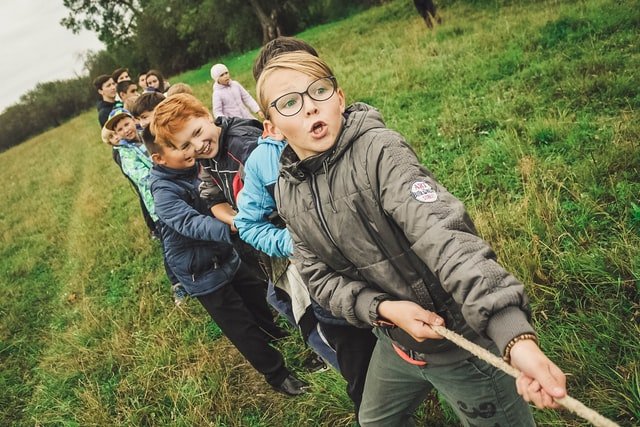Day and Residential Camps in Nevada include facilities that provide recreational and sporting activities for children. There are many challenges to starting, restarting and managing your operation during good times, but additional challenges during the pandemic need even more careful planning, oversight and management. It is important to understand the COVID-19 requirements that may still apply to your industry, suggested best practices, and resources available to help you.
COVID-19 Requirements

Nevada’s Roadmap to Recovery lays out requirements for businesses with specific capacity limits and other requirements. Starting May 1st, 2021, the state transitioned to local authority for setting specific requirements by business types. Visit the Nevada Health Response website for the latest updates on COVID-19 Guidelines in Nevada.
Industry Best Practices
Some general best practices and tips that may help you comply with guidelines and help your customers, campers, and employees feel safe include:
- Require customers and employees to wear face masks
- Social Distance
- Encourage social distancing (6 feet). Increase spacing and small groups. Limit mixing between groups to encourage social distancing
- Counselors should wear face masks when interacting with others closer than 6 feet for extended periods (e.g. greater than 15 minutes)
- Consider implementing staggered scheduling, arrival and drop-off, if feasible.
- Do not use communal water fountains
- Avoid sharing common bathroom supplies. Instruct campers to bring their own bathroom supplies and a container for toiletries
- If possible, create at least 6 feet of space between beds. If utilizing head-to-toe orientation, 4 feet of space between beds is acceptable
- Considering limiting the enrollment to 50% of normal capacity
- Install plexiglass/clear acrylic panels or barriers between campers and staff at check-in areas and food facilities
- Ask parents to drive their kids to camp in order to eliminate exposure on the bus
- If bus service is unavoidable, reduce the bus capacity to 50%
- Maintain the roster of cabin-members throughout the program. Do not rotate campers between cabins.
- Require performing arts activities to be limited to the same groups and instructors for a given group.
- Assign seats to diners for the duration of camp.
- If there is a forecast for rain, consider canceling camp for that day in order to avoid close contact in indoor facilities
- Instead of having meals in the indoor dining hall, consider having outdoor picnics
- Install sneeze and cough screens at food displays. Minimal items should be placed on tables to allow for effective disinfection in between meals, including condiments, silverware, glassware, napkins, etc.
- Consider using prepackaged foods and ‘grab & go’ items
- Have the same campers in each group every day
- If there is a pool, limit the number of campers allowed
- Have a signup sheet and have the campers sign up for available times
- Place any seating at least six feet apart
- Create physical barriers between sleepers using curtains, sheets, etc.
- Have customers and/or campers complete a self-assessment questionnaire prior to arrival
- Cleaning
- Have hand sanitizer and sanitizing stations and products readily available for counselors and campers
- Require frequent and thorough hand washing, including providing more areas for hand washing. If soap and running water are not immediately available, provide alcohol-based hand sanitizer
- Regularly disinfect all high touch surfaces
- Cabins should be cleaned routinely
- Swimming pools and play areas should be properly cleaned and disinfected
- Personal flotation devices should be cleaned and disinfected after each use
- Make sure the campers are cleaning their linens on a daily basis
- Use cleaning products that meet the EPA’s criteria for use against SARS-CoV-2 (the virus that causes COVID-19) – this list of products can be found on the EPA website here: List N: Disinfectants for Use Against SARS-CoV-2
- Read more about Cleaning and Disinfecting during a pandemic
Business Basics
Business basics are more important than ever. Evaluate your profit and loss statement. Look for ways to reduce operating and food costs. Analyze your cash flow and breakeven to evaluate the impacts of the new guidelines and best practices on your operations. As Nevada’s COVID-19 measures evolve you may need to continually adjust your operations. Here are a few things to think about:
- Get Help
- Contact a business development counselor at the Nevada SBDC by calling 800.240.7094 – we can help you assess your operations and decide on best strategies for your business
- For questions about cleaning and disinfecting, strategies to control new waste streams, or other environmental questions, contact an environmental business advisor at BEP at 800.882.3233
- Communicate
- Keep communicating with your customers on social media and your website with announcements about your current hours and new or expanded services so your customers understand your current operations
- Be open about the measures you are taking to meet guidelines; consider signage at your entrance so customers can be aware of the steps you are taking to prevent the spread of COVID-19 and to meet new industry guidelines
- Expand Services
- Offer incentives for discounted packages
- Consider additional accommodations such as half days or weekly packages
- Offer gift cards
- Potential Cost-Saving Measures
- Only turn on utilities that are needed – do not use all fans, lights, or air conditioners when there are fewer people in the facility
- Consider energy efficiency, waste minimization and other sustainability strategies
- Creative Marketing
- Update or redesign your website; make sure it is mobile friendly
- Create a following on social media and keep in touch with campers and their families
- Use micro social media and focus more on the immediate neighborhood in order to bring in local members/clients
- Advertise through local homeowner associations and apartment and condo complexes
- Supply homeowners associations, apartment complexes, and condos with special promotional codes to help drive business
- Place ads in the local visitors center
Resources
- Nevada Health Response: Business and Industry Compliance
- Nevada Health Response
- Nevada Department of Business & Industry, Occupational Safety & Health Administration
- Southern Nevada Health District (SNHD) COVID-19 Guidance for Businesses and Permitted Facilities
- Nevada Governor’s Office of Economic Development
- Center for Disease Control (CDC) Guidance
- US EPA List N: Disinfectants Approved for Use Against SARS-CoV-2
- Small Business Federal Financial Assistance
- U.S. Securities Exchange Commission Resources for Small Business



